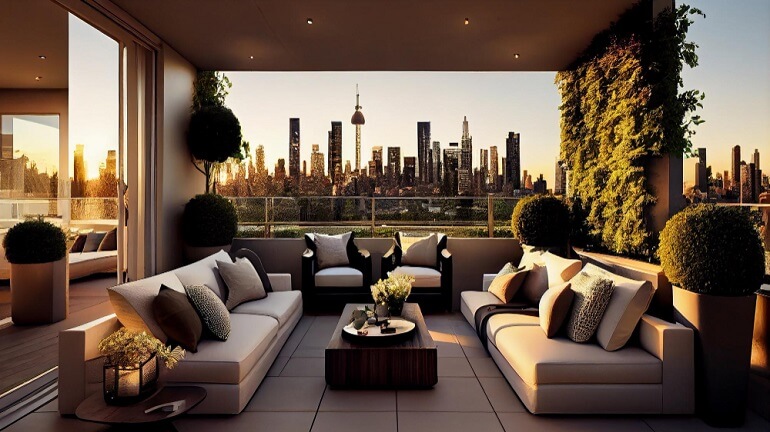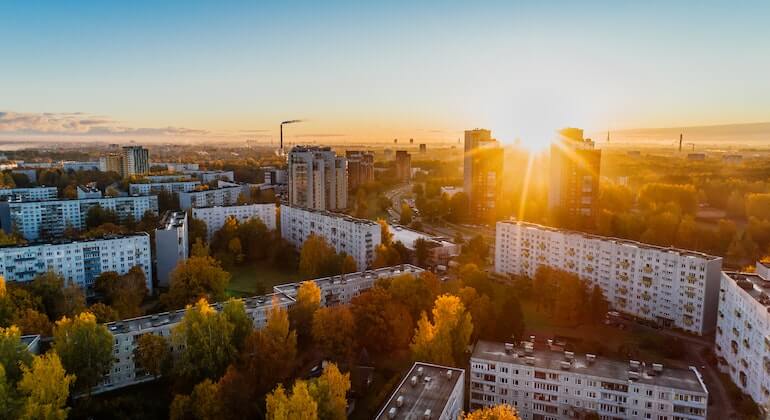The number of real estate purchases made by billionaires worldwide has surged, and these acquisitions are concentrated in several global capitals. The “billionaire quarters” in a few big cities are expanding far more quickly than any other real estate market. This tendency has been exacerbated in part by the rise of new affluent classes in China and Asia. Dan Conn, CEO of Christie’s International Real Estate, referred to the demand for luxury estates as the desire to own “trophies.” Broad trends are anticipated to continue, despite the fact that the current pandemic and economic instability have slowed down and increased uncertainty. So let’s find out which five cities are most sought-after for luxury real estate ownership worldwide.
Ireland’s Dublin
Though London would be the obvious choice, Dublin appears to be the most sought-after place in Europe for opulent real estate. Because they dodged Europe’s 0.2 price decrease and saw a 0.6 price increase in the luxury real estate market, the Irish defeated the British on this battleground. Ireland has maintained Europe’s prominence when it comes to the residences of billionaires, even as the rest of the continent dealt with the economic crisis. The capital of Ireland’s fascinating history and vibrant atmosphere are contributing to its appeal to the upper class.
Japan’s Tokyo
For both foreign and indigenous real estate investors, the capital of Japan is an excellent location. Tokyo’s comparatively cheap high-end real estate is predicted to increase in value year after year as an increasing number of foreign businessmen establish connections with this Asian nation. With lavish mansions to be developed there, Japan is making practically every positive top list, and this time is no exception.
Montenegro’s Tivat
Steady GDP growth through the years, low corporate and capital tax rates, and miles and miles of space along the coast that’s just waiting for new property development. Is there anything more you could ask for? Since Montenegro depends primarily on upscale travel, it has drawn international investors from all over the globe. Tivat is the jewel in Montenegro’s crown due to its immaculate beaches, vibrant expat community, and vast unrealized potential for astute investors. Purchasing stunning luxury real estate in Montenegro is undoubtedly a wise choice because your asset will appreciate in value over time. These are easy to rent locations, and Tivat’s appeal will probably only increase with time due to the city’s continued tourism boom.
Israel’s Tel Aviv
Tel Aviv real estate prices have increased by roughly ten percent, probably as a result of expanding industry and technology developments. Israel’s luxury real estate market is in better shape and stronger than it has ever been. Billionaires all over the world are drawn to Tel Aviv because of its luxurious real estate and breathtaking Mediterranean scenery. Even without the view of the sea, you can still find opulent villas in the countryside, and the cost is not going down.
Australia’s Sydney
In this metropolis, the demand for upscale real estate is always rising, regardless of the situation of the real estate market. Low mortgage rates, the perception of Australia as a nation producing “new wealth,” and the strong desire from overseas investors are what drive up the cost of luxury homes in Sydney. However, the rising cost of luxury estates is making the city’s real estate unaffordable for the average person.
California’s Los Angeles
The cost of real estate in this Californian city is rising annually. Even while the average cost of a property is not very high, the cost of luxury establishments is rising. Given that Hollywood is based in Los Angeles, it makes obvious that this city is the go-to destination for those looking to buy enormous, obscenely costly homes. There is still a lot of available real estate in Los Angeles, so celebrities who walk the red carpet may anticipate having new, similarly affluent (though perhaps not as well-known, but nonetheless) neighbors.
Future real estate decisions by luxury buyers will likely be influenced by market globalization and limits on overseas purchases. The potential for (nearly) limitless purchasing power will probably be the deciding factor. Nowadays, rather than being industrial hubs, the cities that are preferred by investors and the world economy are hubs of creative knowledge.



